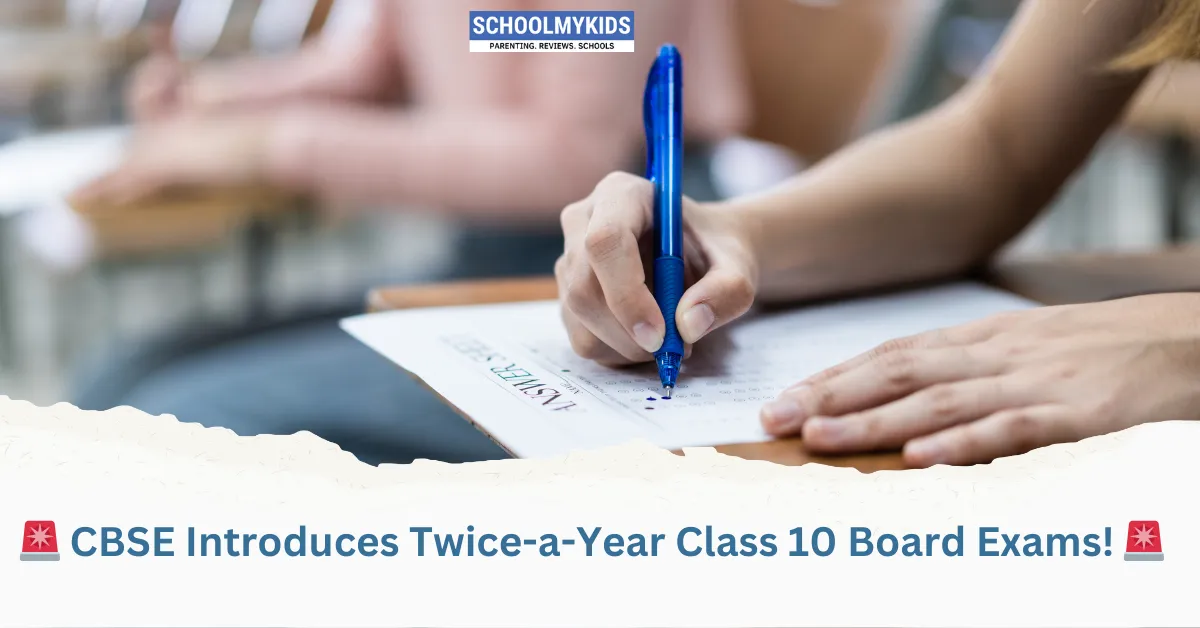In a move that signals a paradigm shift in secondary education, the Central Board of Secondary Education (CBSE) has announced a dual-examination system for Class 10 board exams, effective immediately. This decision, aimed at reducing student stress and fostering a more flexible learning environment, will see students taking board exams twice within the same academic year.
The first phase of these exams is scheduled for February and March, aligning with the traditional examination period. The second phase, however, will follow shortly after, taking place from May 5th to May 20th. This compressed schedule means students will face a significantly altered academic calendar, requiring them to adapt quickly.
Impact on Students and Coping Strategies
This new format presents both opportunities and challenges for students. On one hand, it offers a chance to improve scores and potentially alleviate the pressure of a single, all-or-nothing exam. On the other, it necessitates a more sustained and consistent study effort throughout the academic year.
Here's how students can effectively cope with this change:
- Early and Consistent Preparation: The most crucial adjustment is to move away from last-minute cramming. With two examination windows, students must adopt a continuous learning approach. Regular revision and consistent study habits will be paramount.
- Strategic Time Management: Students need to create detailed study schedules that account for both phases of the exams. This includes allocating sufficient time for revision, practice tests, and addressing areas of weakness.
- Focus on Conceptual Understanding: Rote learning will be less effective in this new system. Students need to prioritize understanding core concepts rather than simply memorizing facts. The exams will likely test application and critical thinking skills.
- Practice with Mock Tests: Regularly taking mock tests under exam conditions will help students familiarize themselves with the format and timing of the exams. This is even more important with the second exam happening so soon after the first.
- Stress Management Techniques: The pressure of multiple exams can be overwhelming. Students should incorporate stress-reducing activities into their routine, such as exercise, meditation, or hobbies.
- Seek Guidance: Students should actively seek guidance from teachers, tutors, and parents. Clarifying doubts and addressing concerns promptly will prevent them from falling behind.
- Analyze Performance: After the first phase of exams, students must meticulously analyze their performance. Identifying areas of weakness and focusing on improvement will be critical for the second phase.
Changes in Preparation Strategies
- Modular Learning: Break down the syllabus into smaller, manageable modules. This will make the learning process less daunting and allow for focused revision.
- Adaptive Revision: Tailor revision strategies based on the feedback received from the first exam. If a student performs poorly in a particular subject, they should dedicate more time to that area.
- Utilize Online Resources: Online learning platforms and educational apps can provide valuable resources for practice and revision.
- Collaborative Learning: Studying with peers can help students clarify concepts and gain different perspectives.
The CBSE's decision marks a significant shift in the educational landscape. Students, parents, and educators must work together to adapt to this new system and ensure that students can thrive in this evolving environment.









Be the first one to comment on this story.